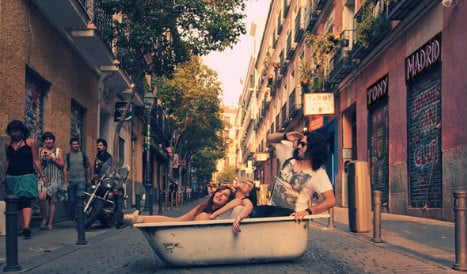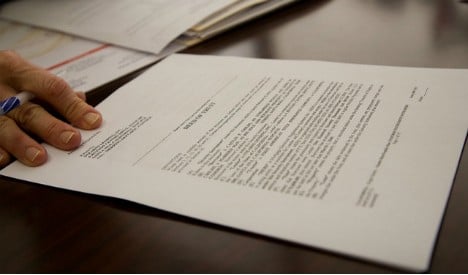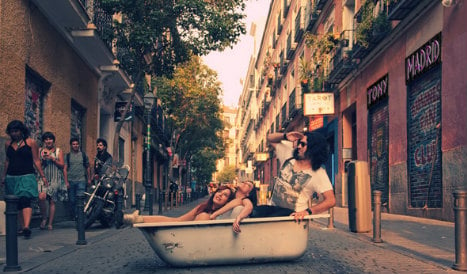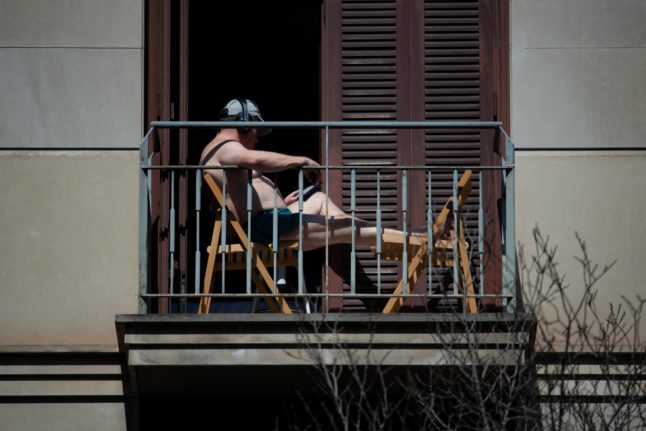Spain’s expat community is made up of nearly 4.5 million foreign residents, and as Spain slowly emerges from the economic crisis, that number is set to increase. More and more foreigners are choosing to make a life in Spain, be it for the climate, the different pace of life or the chance to finally learn Spanish!
But before taking the plunge, there are important things to consider…
1) Learn at least basic Spanish

Photo: Leonid Tatarinov/Flickr
When in our own countries, it is easy to take communication for granted. Be prepared by knowing basic greetings, and standard phrases (where is? how much is? please, thank you, etc). You might be able to navigate your way in English in more touristy locations, but imagine living in a less central neighbourhood and pulling your hair out at the local grocery store because you can't remember the word for lettuce!
Do take advantage of the opportunity to speak a foreign language and push yourself. Write down new words you learn and practice using them over and over again. Remember these are learning experiences that will be foundations on your journey to becoming a true expat.
2) Know the time schedule
The Spanish time schedule is different than that of the USA and most European countries. Most businesses are open at 10am and close at 9pm, but also close between 2pm and 5pm for the siesta. Weekends vary: while shops are open on Saturdays, a lot of other services are closed. For example, as home hunters we get requests to see apartments at the weekend. However, in Madrid we find that most agents are not reachable at the weekend so it is difficult to optimize apartment options on a Saturday or Sunday.
As for mealtimes, breakfast is usually between 7.30am and 9.30am, mid-morning snack is at 11am, lunch from is from 2pm to 4pm, afternoon snack between is between 5.30pm and 6pm, and dinner is between 9pm and 11pm.
If you are going out for dinner, most establishments will not seat you before 8.30pm unless you are in tourist areas.
3) Research your neighbourhoods

Photo: TonyMadridPhotography/Flickr
Before arriving, it's important to look into the different neighbourhoods or barrios of your chosen town or city. Important things to consider are: location in relationship to your daily commute, cost, lifestyle, and schedule.
When I first moved to Madrid, I lived in the area near Plaza de Toros because it was located on my metro commute. I realized quickly that the local community was not really in my age group and that most local establishments closed way too early for my lifestyle and schedule. Do not just choose anything. This is your new home – make sure it’s the right place for you.
4) Know the cost of living
Let's take Madrid as an example. The cost of living (including rent, bills, food and extra expenses) can be from €800 to €1,000 per person per month, if you're living on a student budget, to over €4,000 for a luxury lifestyle.
Renting an apartment in Spain is different to what you might be used to in your home country. Everything is negotiable – or nearly – depending on the market. In a rental, all the conditions depend on the agreement you reach with the landlord. When you negotiate these conditions, it is essential you keep in mind the standard rental laws (La Ley de Arrendamientos Urbanos).

Photo: AFP
6) Be aware of the conditions of purchasing property
Do your research. Buying property in Spain is not like buying in your home country. Know what the mortgage rates are for expats, what you will have to pay in taxes and fees, what the legal limits are, and what the buying process is like. Do your due diligence of legal, architectural and financial checks. Also, it's always worth asking for the help of a professional.
7) Get a bank account
You need a Spanish bank account to pay your bills. There is no other way around this. All service providers require one. If possible, sign up for a bank account before you arrive so that it is ready to transfer funds from your current bank. This will make everything quicker (signing up for services, rental deposits, etc). Do research on which banks operate in Spain, which have personalized representatives that speak English, and where the international transfer costs are the lowest.
8) Look for the best phone plans
Be ready to sign up for an affordable phone plan that matches your budget. Whether it is a pay-as-you-go plan or an 18-month contract, do your research and sign up before you arrive (with your new bank account).
9) Prepare for red tape

Photo: Caitlin Childs/Flickr
When you arrive in Spain, you will need to go through processes of getting or registering for basic administrative essentials like your NIE (Tax Number), social security number, medical card and padrón.
Obviously you cannot do some of these things until you arrive, but have an idea of what to expect so that you can get this done as quickly as possible when you arrive and start enjoying your new home.
Five red tape essentials for new arrivals in Spain
Marianne Calvin is a relocation expert at Moving2Madrid. If you are relocating to Madrid and want help with these steps or advice on renting or buying contact Moving2Madrid or make an appointment for a free consultation.



 Please whitelist us to continue reading.
Please whitelist us to continue reading.
Member comments